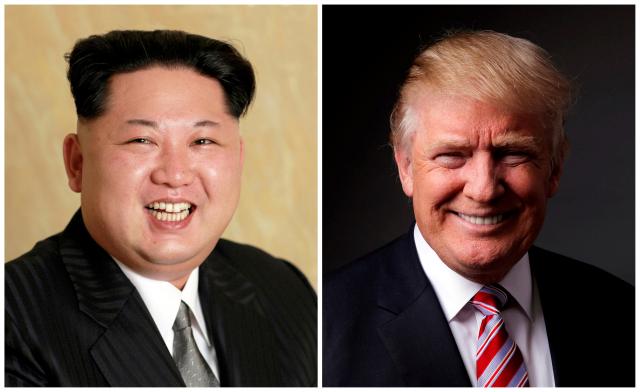The summit would be the first-ever meeting between a serving U.S. president and a North Korean leader, and will follow one between South Korean President Moon Jae-in and Kim on Friday. Trump has said his meeting with Kim could take place in late May or June but has warned it could be called off if he did not think it could deliver the desired results.
Prospects were boosted on Saturday when Kim announced an end to nuclear and missiles tests, saying North Korea was scrapping its nuclear test site and pursuing economic growth and peace. U.S. and South Korean officials say Kim has said he is willing to discuss denuclearization, but he said nothing on Saturday about giving up his existing nuclear weapons.
Trump and other world leaders welcomed Kim’s announcement of an end to testing, but some expressed doubts about North Korea’s intentions. The U.S. president said on Sunday the crisis over its pursuit of nuclear missiles capable of hitting the United States was still a long way from being resolved.
“Maybe things will work out, and maybe they won’t - only time will tell,” Trump said on Twitter.
Trump’s administration has said it wants North Korea’s “complete, verifiable, and irreversible denuclearization” but has offered few details of the strategy it will employ in talks.
It has vowed not to repeat mistakes of the past. Decades of unsuccessful engagement with Pyongyang, however, help define the contours of a negotiating process that could last years.
DENUCLEARIZATION
Getting Pyongyang to abandon its nuclear missile programs has been the aim of all international negotiations with North Korea since the early 1990s, yet last year it tested what is widely believed to have been an H-bomb and intercontinental ballistic missiles.
Trump’s CIA director and secretary of state nominee, Mike Pompeo, said this month he was optimistic a Trump-Kim summit could set a course for a diplomatic outcome with North Korea, but no one was under any illusion that a comprehensive deal could be reached at the meeting.
Pompeo, who spoke just after becoming the first serving U.S. official ever to meet Kim, suggested U.S. interests would be put first, saying the aim would be “an agreement...such that the North Korean leadership will step away from its efforts to hold America at risk with nuclear weapons.”
This added to Japanese and South Korean fears that Trump could seek a quick ICBM deal, while putting shorter-range missiles threatening the allies to one side. Experts say North Korea needs several more tests to prove its ICBM capability, making Kim’s test freeze highly significant.
A de facto freeze since North Korea’s largest and most recent nuclear test in September and its last missile test in late November, had already helped create conditions for talks.
VERIFICATION AND COMPENSATION
North Korea is seeking relief from international sanctions hurting its economy. In past failed deals, it agreed to give up its weapons program in exchange for aid, including fuel oil and alternative nuclear reactors, as well as security guarantees, which have included a U.S. pledge not to attack or invade.
North Korea also agreed in past deals to return to the nuclear non-proliferation treaty and to invite International Atomic Energy Agency verification. Activity at its main Yongbyon nuclear reactor site will be a factor in future talks and Washington will want to see proof of the shutdown of its Punggye-Ri test site.
Pompeo has said North Korea should not expect rewards until it takes irreversible steps. He said the historical analysis was “not optimistic,” when asked if he believed North Korea would agree to dismantle its nuclear program, but argued that in past negotiations, sanctions had been relaxed too quickly.
U.S. intelligence officials believe three rounds of U.N. sanctions last year “significantly depressed North Korea’s export earnings,” one intelligence official said. But Kim’s willingness to negotiate seriously would depend on continued economic pressure, which required sustained Chinese and better Russian cooperation.
For now, one official said, “It would be foolish in the extreme to think Kim’s ready to talk about abandoning his family’s longstanding nuclear program right off the bat, or to take at face value any comments about denuclearization.”
DETAINED AMERICANS
The White House has said three Korean-Americans detained in North Korea will be a factor ahead of a summit.
Trump said last week Washington was negotiating for the release of the men and there was “a good chance of doing it.” But he did not reply when asked whether that would be a condition for going ahead with the summit.
PEACE TREATY
North Korea has long sought to replace the 1953 Korean War armistice with a peace treaty. The two Koreas have resumed this discussion, but South Korea has danced around the term “peace treaty” by referencing a “peace regime” or an “agreement to end hostile acts.” Trump has said the effort has his “blessing” - if Pyongyang agrees to abandon its nuclear arsenal.
More about: #Donald-Trump
















































